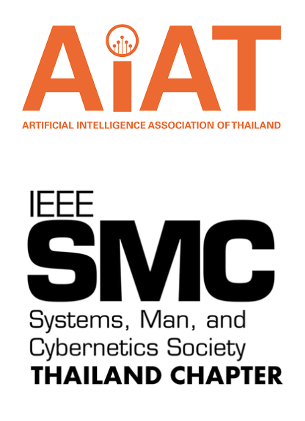The Nature of Digital Transformation Project Failures: Impeding Factors to Stakeholder Collaborations
DOI:
https://doi.org/10.14456/jiist.2022.8Keywords:
digital transformation, stakeholder collaboration, project management, impedimentsAbstract
For successfully executing digital transformation(DX) projects in a company, collaboration among various internal and external stakeholders is intrinsically crucial and key to success. However, there are various factors that can impede such collaborations, six of which were identified in this paper based on interviews with DX project stakeholders. Six impeding factors include information gap, experience gap, incompatible evaluation criteria, conflict of interest, perception gap of the future, and lack of mutual trust. Although previous studies have discussed superficial factors which directly explain the success or failure of such projects, this paper isolates and explores them in greater depth than the traditional ones. These essential impeding factors are helpful to find solutions to eliminate them and lead DX projects to success.
References
Rogers, B.: Why 84% Of Companies Fail at Digital Transformation https://www.forbes.com/sites/brucerogers/2016/01/07/why-84-of-companies-fail-at-digital-transformation/?sh=194d06ae397b (accessed at Aug. 10, 2021)
IPA(Information-technology Promotion Agency, Japan): DX Promotion Index Self-diagnosis Results Analysis Report(2020 edition)(in Japanese)(2021).
Davenport, T. H., and Westerman, G.: Why so many high-profile digital transformations fail. Harvard Business Review(2018). https://hbr.org/2018/03/why-so-many-high-profile-digital-transformations-fail (accessed at Aug. 10, 2021)
Osmundsen, K., Iden, J., and Bygstad, B.: Digital Transformation: Drivers, Success Factors, and Implications. 12th Mediterranean Conference on Information Systems, 1-15(2018).
Hartl, E., and Hess, T.: The role of cultural values for digital transformation: Insights from a Delphi study. 23rd Americas Conference on Information Systems, 1-10(2017)
Mhlungu, N. S., Chen, J. Y., and Alkema, P.: The underlying factors of a successful organisational digital transformation. South African Journal of Information Management, 21(1), 1-10(2019).
Saltz, J. S., and Shamshurin, I.: Big data team process methodologies: A literature review and the identification of key factors for a project's success. 2016 IEEE International Conference on Big Data, 2872-2879 (2016).
Saldanha, T.: Why digital transformations fail: The surprising disciplines of how to take off and stay ahead. Berrett-Koehler Publishers(2019).
Stief, S. E., Eidhoff, A. T., and Voeth, M.: Transform to succeed: An empirical analysis of digital transformation in firms. International Journal of Economics and Management Engineering 10(6) 1833-1842 (2016).
Ikegami, H., and Iijima, J.: Unwrapping Efforts and Difficulties of Enterprises for Digital Transformation. Digital Business Transformation, 237-250(2020).
Bilgeri, D., Wortmann, F., and Fleisch, E.: How digital transformation affects large manufacturing companies' organization. 38th International Conference on Information Systems, Thirty Eighth International Conference on Information Systems, 1-9(2017).
Cohen, W. M., and Levinthal, D. A.: Absorptive capacity: A new perspective on learning and innovation. Administrative science quarterly, 128-152(1990).
Von Hippel, E.: "Sticky information" and the locus of problem solving: implications for innovation. Management science, 40(4), 429-439 (1994).
Hoang, L. A., Uchihira, N.: Requirement engineering in knowledge-intensive manufacturing shop floors: A knowledge-based approach. The 14th International Conference on Knowledge, Information and Creativity Support Systems(KICSS2019), HO CHI MINH CITY, 2019.
Westerman, G., Bonnet, D., and McAfee, A.: Leading digital: Turning technology into business transformation. Harvard Business Press (2014).
Uchihira, N.: Dialogue Tool for Value Creation in Digital Transformation: Roadmapping for Machine Learning Applications. Lecture Notes in Networks and Systems, 266, 518-526(2021).
Sagi, D.: 'Nemawashi' a Technique to Gain Consensus in Japanese Management Systems: An Overview. International Journal of Arts, Humanities and Management Studies, 1(4)(2015).
Wedell-Wedellsborg, T., and Miller, P.: The Case for Stealth Innovation. Harvard Business Review, 91(3)(2013).




